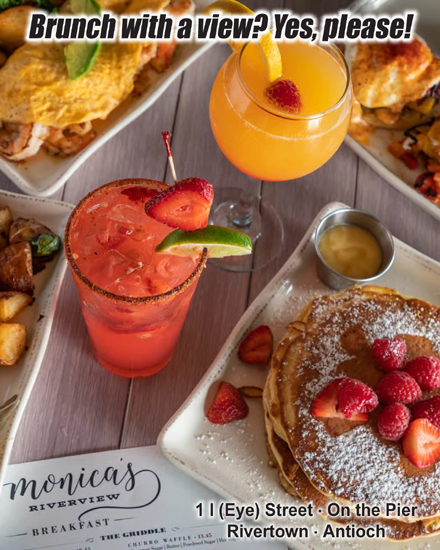New Contra Costa health permit allows home kitchens to sell meals to the public

Microenterprise Home Kitchen Operations can offer meals for dine-in, delivery and takeout and with limits, in addition to Cottage Food Operations already allowed
By Contra Costa Health

Contra Costa residents interested in selling home-cooked food to the public can now get a health permit to do so, an affordable option for entrepreneurs that ensures the safety of their customers.
Beginning July 1, Contra Costa Health (CCH) offers a new type of food permit for small-scale, home-based restaurants operated inside private homes by their residents. Microenterprise Home Kitchen Operations (MEHKOs) can offer meals for dine-in, delivery and takeout. MEHKOs can offer meals for dine-in, take-out, and/or delivery, and can also be used as a commissary for permitted food carts.
“By providing this option we ensure that people who sell food out of their homes do so in a safe manner that protects the health of our community,” said Federal Glover, chair of the Contra Costa County Board of Supervisors. “We also open the door for neighborhood businesses, and for more access to healthy, nutritious food in areas where options may be limited.”
The board unanimously adopted an ordinance in May authorizing the county to offer the permit under terms of a 2018 state law. Several other Bay Area jurisdictions already do so, including Alameda, San Mateo, Santa Clara and Solano counties, and the City of Berkeley.
The permit allows meals to be stored, handled, and prepared to be served or delivered in a private residence. Most other food permits require a commercial kitchen in a restaurant or similar facility.
A permitted home can also serve as a space to prepare food for sale on street carts, a requirement to obtain a cart vendor health permit that has proven to be a significant barrier in Contra Costa.
As with holders of standard commercial food permits, MEHKO permit holders must meet requirements relating both to the spaces where their businesses operate and the food-safety training of operators. CCH will inspect each permit holder annually or more often.
The MEHKO permits do limit the holder to selling no more than 30 meals per day and 90 meals per week, and no more than $100,000 in gross annual sales. There are also some limitations regarding the type of food that may be served.
CCH will schedule workshops throughout the county later this year for potential applicants.
“This permit is great for new entrepreneurs who are just getting started,” CCH Environmental Health Director Kristian Lucas said. “It’s also a way for the public to know that a seller advertising on social media is complying with food safety regulations.”
MEHKO permit holders will be required to display their permits at their homes, and their health inspection records will be available to the public at cchealth.org.
Cottage Food Operations Already Allowed
Contra Costa Health offers two kinds of permits for home-based food operations. In addition, to the new MEHKO, the county also allows Cottage Food Operations (CFO) which “is a home-based operation that allows limited amounts of certain foods to be prepared in a home kitchen for retail sale. A CFO can prepare and package non-potentially hazardous foods from home. The California Department of Public Health maintains a listing of foods approved to be sold from a private residence. Some examples of these foods include cookies, candies, jams/jellies, muffins, cakes, and pies. Only foods on the state listing are approved as cottage food products.
According to the California Department of Public Health Food and Drug Branch, “There are two different classes of CFO’s:
Class A: This type of CFO can sell home-kitchen prepared foods directly to the public. This includes transactions made via the phone, internet, and any other digital method. A direct sale may be fulfilled in person, via mail delivery, or using any other third-party delivery service. A Class A operator’s current maximum gross annual sales are $75,000.
Class B: This type of CFO can sell home-kitchen prepared foods directly to the public or indirectly through restaurants and food markets. A direct sale may be fulfilled in person, via mail delivery, or using any other third-party delivery service. An indirect sale may be fulfilled in person, via mail delivery, or third-party delivery service. The current gross annual sales for a Class B operator are $150,000.
In Antioch, home-based business owners are also required to obtain a Home Occupation Use Permit from the City.
For more information about the new and CFO permits, including how to apply, visit cchealth.org/homekitchens.
the attachments to this post:


























